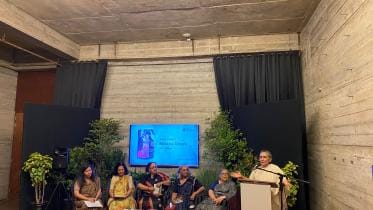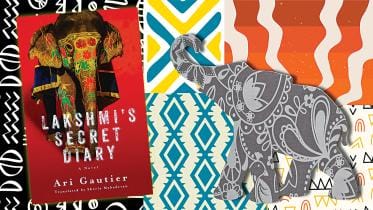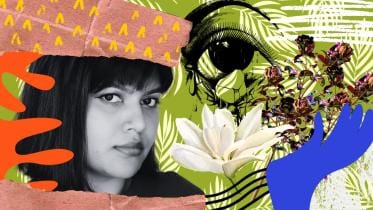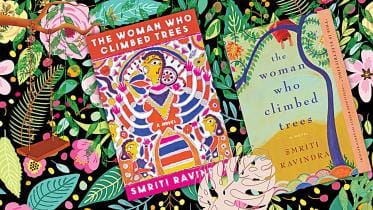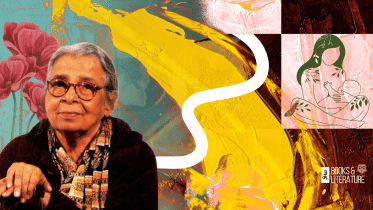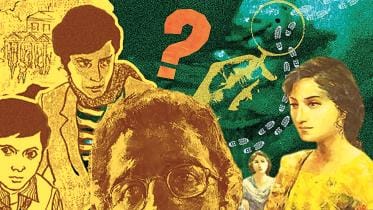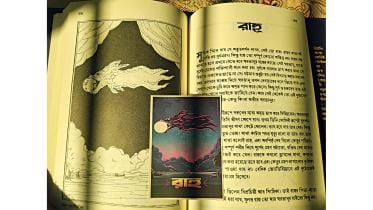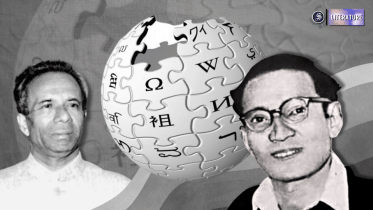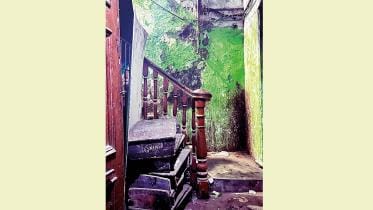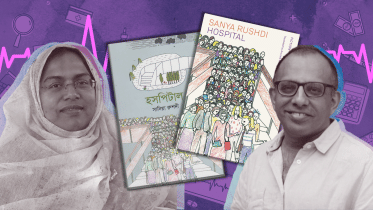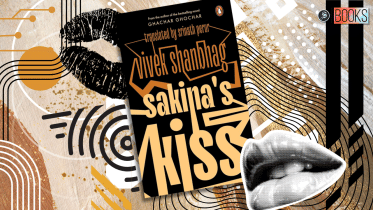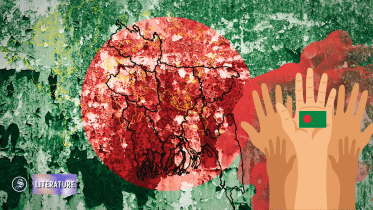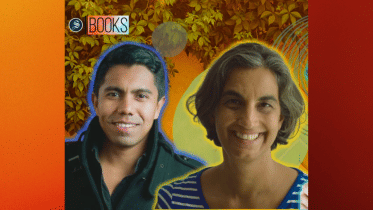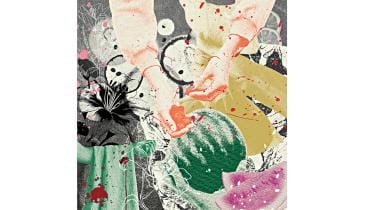South Asian Literature
When dreams refuse to stay silent
The launch brought together literature, art, and reflection, marking the arrival of Breaking Dreams as a work that speaks both to individual lives and to the wider social realities of Bangladesh.
9 September 2025, 13:00 PM
Acknowledging the lesser-known
Aptly named Ateet Theke Adhuna: Bangladesher Naari Lekhok, this collection is unlike a conventional anthology. Starting with Rokeya Sakhawat Hossain, the list of writers includes an impressive 66 great authors.
2 July 2025, 18:00 PM
When the moon dances with elephants
In Lakshmi’s Secret Diary, Ari Gautier crafts a dazzling, multi-layered narrative that is as whimsical as it is profound.
19 June 2025, 18:00 PM
Embracing the bizarre and ‘An Eye and a Leg’
The Asia regional winner of the 2025 Commonwealth Short Story Prize, Faria Basher, in an interview with The Daily Star, opens up about her journey from lifelong reader to emerging writer.
4 June 2025, 18:00 PM
A kaleidoscopic collection of stories by an outsider
Storytelling is not easy, especially when a few words portray a character with depth and just enough strokes to etch the social milieu for certain classes and creeds and the outcomes of political ideologies in post-independent Bangladesh.
28 May 2025, 18:00 PM
Of women, rage, and what burns unseen
These stories subtly highlight how even within patriarchal structures, men, too, are shaped, sometimes twisted by the systems they benefit from.
28 May 2025, 18:00 PM
‘Human translation will continue, despite machines’: An interview with V. Ramaswamy
Ramaswamy shares insights on his upcoming projects and, among other things, thoughts on whether AI could ever be a serious translator
21 May 2025, 18:00 PM
Betwixt and between: Tales from a Nepali-Indian girlhood
Ravindra's prose is brisk, smooth, and detailed, with numerous stories from traditional Nepali and Hindu folklore chipped in, adding layers as the story unfolds.
21 May 2025, 18:00 PM
On motherhood and Mahasweta Devi’s ‘Breast-Giver’
I couldn’t help but think of the cultural significance of the word “ma” in our own society today; it is lead-heavy with meaning and so frequently invoked—from commonplace addresses of tender respect for women to motherly depictions of the landscape of Bengal in artworks, songs, and films
11 May 2025, 15:55 PM
Feluda, the idea of ‘Bangali Bhadralok’, and the gendered silence in detective fiction
These decisions hint at an implicit belief that certain genres or readerships require the exclusion of certain genders, whether due to artistic limitations, market considerations, or adherence to established genre conventions.
8 May 2025, 18:00 PM
Through folklore and fantasy: An ode to Bangla mythological characters
The book invites you to revel in the world of legends, to dream as you once did as a child.
1 January 2025, 18:00 PM
On invisibilised violence
In classic Bengali fiction, the kitchen is a central site for conflict and community bonding.
6 December 2024, 18:00 PM
Bangladesh’s writers on Wikipedia: Abbasuddin Ahmed and Humayun Kabir
If such writers lived in, and contributed to the literary legacy of, other countries, I will offer a compromise and propose a hyphenated identity.
3 October 2024, 14:17 PM
Otherness and invisible identities
'The Hippo Girl and Other Stories' holds up a mirror to a society that judges and ridicules those that do not adhere to its shortsighted vision of a homogenised culture.
24 July 2024, 18:00 PM
Speaking with Arunava Sinha about Sanya Rushdi’s ‘Hospital’: A translator extraordinaire
"...it is our responsibility to contribute to ways in which more translators can work well, be compensated fairly and find the work worthwhile enough to continue doing it"
6 June 2024, 09:59 AM
Unseen chains of consequences
When a few boys arrive at the couple’s flat to seek out their college-going daughter, Rekha, the parents are thrown into a whirlwind of adventure.
29 May 2024, 13:45 PM
Byting wisely: The varying narratives of nationalism and independence
So in the spirit of Independence, I urge my reader to exercise independence of consumption—to question what you are buying, what you are reading, what you are watching, and which of these you are really given the freedom to choose.
26 March 2024, 13:41 PM
18th century British women writers and their Indian others
The postcolonial and feminist lenses Chatterjee deploys in his discussion of the works of the selected women writers seem to suit his analysis of the works of these "enlightenment" period British women writers, for their biases, fixations, and anxieties often come into view then.
10 January 2024, 18:00 PM
In conversation with Anjali Singh and Arif Anwar
"I think of myself as someone who just really enjoys people, bringing people out, and hearing about what they’re working on": Anjali Singh
30 December 2023, 13:55 PM
On wars and words
These words are not just some veils adorning the valour and victory of our freedom fighters; they're not just tributes but testaments to the rare occasion of the oppressed overpowering the oppressor.
13 December 2023, 18:00 PM



